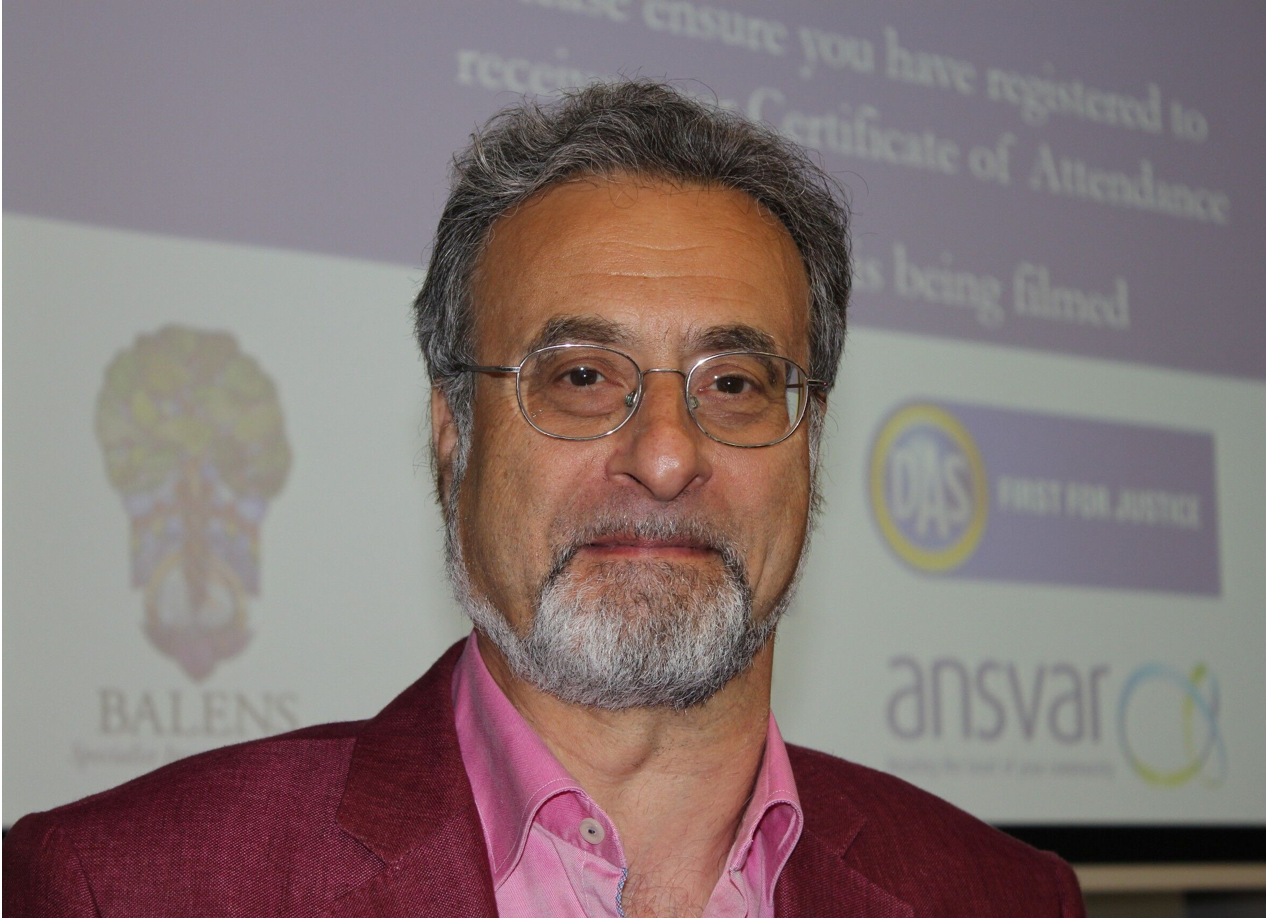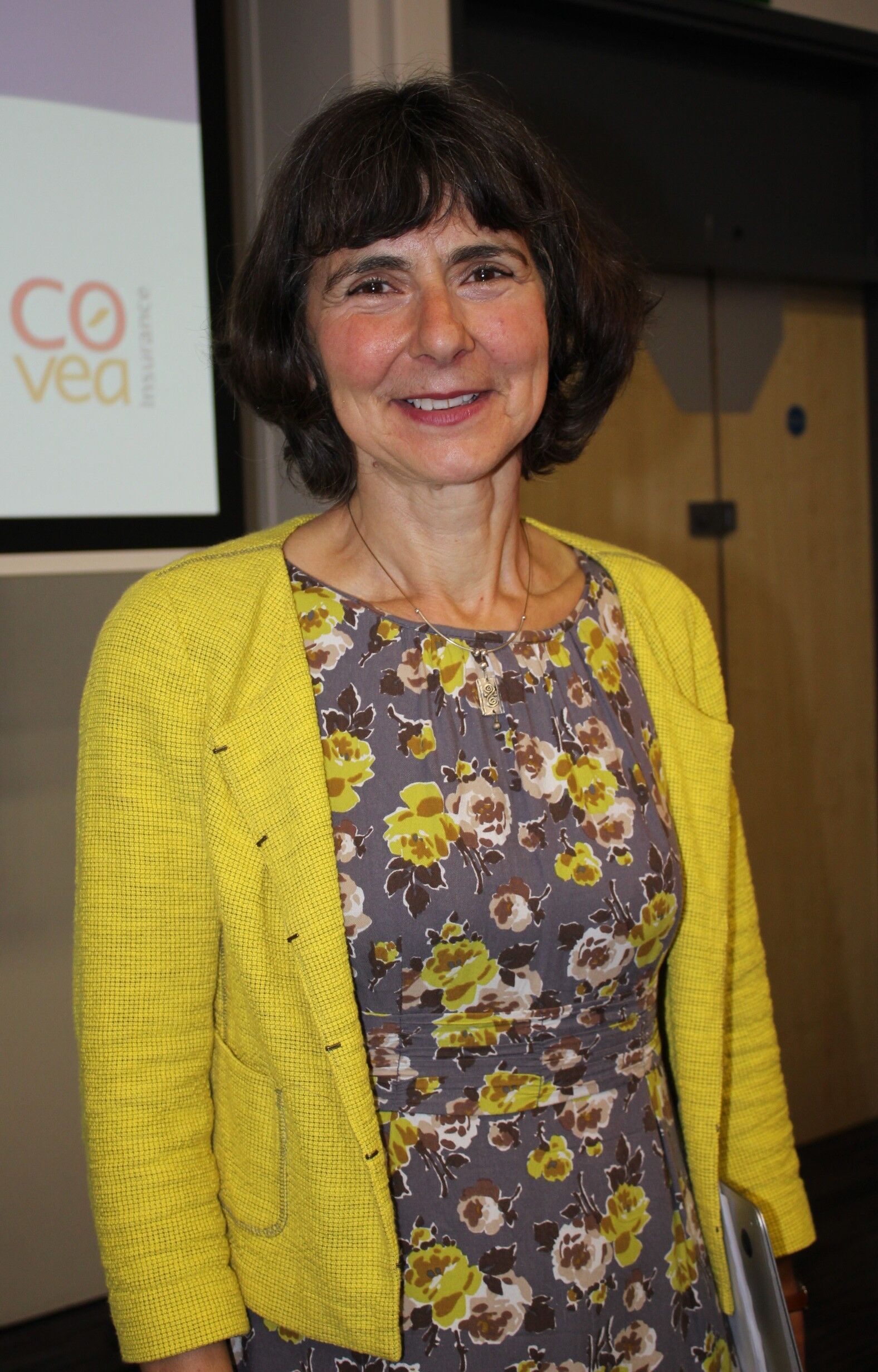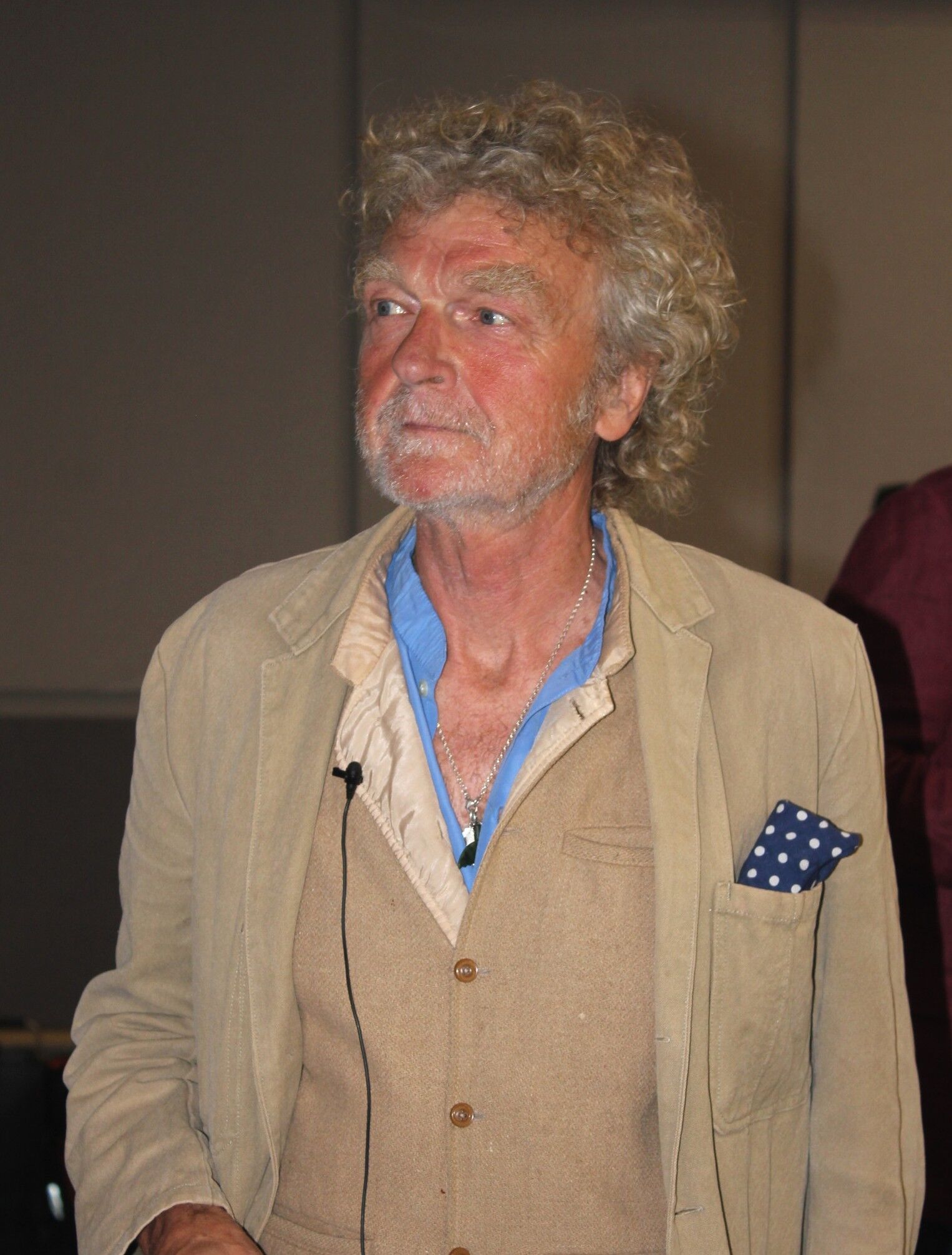Content Sections
- ● The Hawthorn 'big data' project update
- ● The ‘Ecological Terrain’: a model for assessing whole system health – Rob Verkerk PhD
- ● Realistic Hope - Finding a resilient response in the face of chronic or life-limiting illness - Dr Catherine Zollman
- ● Resilience and the Healthcare Juggling Act – Dr David Peters
- ● Dark Humour for Dark Times - Julie Stone
“We can’t change the cards we’re dealt, but you can change how you play your hand”
- Dr Catherine Zollman; GP and Medical Director of Penny Brohn UK
“When we’re stressed, we start to see snakes where there are bits of rope!”
- Dr David Peters; Professor Emeritus, Westminster Centre for Resilience, University of Westminster
“Self-care isn’t something we can outsource”
- Julia Stone; lawyer, author
“Our current chronic disease crisis can’t be fixed with incremental changes or by throwing good money after bad at the NHS. It requires transformative, systemic change.”
- Robert Verkerk PhD; Founder of Alliance for Natural Health International
These are just tasters of the soundbites that emerged from Monday’s Balens 2019 CPD Conference on “Resilience in Healthcare” attended by over 300 health practitioners from a diverse variety of backgrounds.
The conference this year focused on the need for supporting resilience in patients with chronic or life-limiting conditions. It also emphasised the importance of building resilience into the health practitioners and carers who support them. It’s a subject close to our hearts and it spoke to the myriad of elements that make up the ‘ecological terrain’. It’s as much about the mindbody, as it is about internal physiology and metabolism, the outer and wider environment, including the all-important social determinants of health.
But first an update on an initiative that has the potential to be a game changer for future health management and associated government policies that influence it.
The Hawthorn 'big data' project update


David Balen, founder & chairman, Balens Rob Verkerk PhD, founder, executive & scientific
director, ANH-Intl
Big data, particularly health data, is the currency of the moment. Yet when it comes to people who self-care or visit health professionals or use therapies outside of mainstream medical systems, there is a conspicuous absence of data. These people are largely ‘invisible’ when it comes to conventional reporting systems. Two years ago we joined forces with Balens to create a first-of-its-kind app that could remedy the situation. In so doing, also realise a long-held desire of Balens founder, David Balen, to create more alignment between different modalities and find a new model to evaluate their effectiveness in the real world. The Hawthorn Health Tracker is the result of our efforts, along with the digital expertise of Dutch research organisation, TNO.
David and Rob were delighted to share with delegates that the beta test app is finally due to be launched this September under the banner ‘Go Hawthorn’ and will, like Apple Health (and unlike Google platforms), give citizens ownership of their health data. The tracker has been designed to collect data that allows individuals to self-monitor health interventions and follow their health journey to see what is and isn’t working effectively. Following opt-in, anonymised data will be transmitted to the research collaboration so that they can establish associations and patterns between positive and negative health outcomes. This will be valuable both for individuals and their own healthcare choices, but it could also influence public behaviour, government policy and future research.
In phase II, post beta-test, the plan is to use the platform to give individuals more direct support with their health. The data remains citizen-owned, so the choice to engage with the big data research initiative or any individualised health support is optional dependent on receiving the express permission of the person it belongs to.
The information collected characterises elements of key well-established evidence-based determinants of health via 3 sections – About Me; My Health and My Healthcare. These are exciting times as GoHawthorn has the ability to change the face of health reporting as we currently know it. It will also include an entire group of ‘invisible’ people — those who effectively self-care and are healthy so don’t visit their GPs very often and those who use non-conventional modalities.
More information will be available on the GoHawthorn website as we move towards the beta-test launch in September.
The ‘Ecological Terrain’: a model for assessing whole system health – Rob Verkerk PhD
Founder & executive director, Alliance for Natural Health International
Rob explained how important it is for us as a society to come up with radical, transformative ways of looking after our health – creating health, not just preventing disease. He described the need for a bottom-up, participatory and collaborative system that is relevant to all cultures, ages and socio-economic groups. It also needs a common language, as well as allowing the citizen to be in the driver’s seat.
That model is our blueprint.
The Ecological Terrain is a pivotal part of the blueprint. That’s about helping both citizens and health and fitness professionals to be considering the same 12 principal elements of an individual’s ‘health ecosystem’. It’s about creating a common language for participation and collaboration. Encouraging healthcare providers to apply sustainability principles to what they do is equally important if we are to ensure future generations can be supported in their health.
As with any model, it needs to be put to the test. Rob described how we’re now working towards the establishment of trials in a diverse range of real world settings – from GP clinics, through to integrative medicine clinics, community pharmacy, health stores and into non-medical sections of the community, such as among ‘health optimisers’ or ‘biohackers’.
It’s a huge undertaking – but one that we’re deep in preparation for. Watch this space!
Read more about the Blueprint for health system sustainability
Below we share key take-homes from the other speakers:
Realistic Hope - Finding a resilient response in the face of chronic or life-limiting illness - Dr Catherine Zollman
GP and Medical Director Penny Brohn UK (formerly Bristol Cancer Help Centre)

She described realistic hope as the ‘sweet spot’ on the tightrope between false hope and false hopelessness. It allows us to be fully invested in life and living without worrying about future goals, facilitating the letting go of attachments to specific outcomes. Mastering realistic hope is to understand and accept uncertainty with resilience – essential when facing life-changing or threatening situations. Being hopeful is an essential part of being human. But when it comes to dealing with chronic or life-limiting illness is some hope better than no hope? Dr Zollman’s fascinating presentation sought to explore the bounds of ‘realistic hope’. What it is and what it isn’t.
Catherine described how hope is integral to being resilient (being able to cope with and recover from difficult situations), because it helps us find a realistic place to exist. In her experience, hope benefits individuals on a biological level, but it can also improve our quality of life, mental wellbeing, communication with friends and family, aids preparation for passing and can even, potentially, extend survival.
Eight key qualities to nurture realistic hope:
- Appreciation
- Acceptance
- Sense of control
- Holistic outlook
- Resilient thinking
- Connection
- Motivation
- Background resilience
Barriers to nurturing realistic hopefulness in chronic illness:
- Unaddressed fears about death
- Exaggerated claims about treatment
- Medical pessimism
- The complementary/conventional divide
- Tyranny of the positive
- High levels of unmanaged distress
- Attitudes of those around you
- Culture
Supporting realistic hopefulness:
- Eat, sleep, move, relax and connect with the things that matter to you
- Find the positives in adversity
- Identify the things that increase your joy of living in the moment
- Make the present as fulfilling as possible and let go of future expectations
- Get on with life. What are you going to do now?
- The joy of living is better than the fear of dying.
Further Reading:
Seven ways to build resilience by Chris Johnstone
The Cancer Whisperer by Sophie Sabbage
Radical Remission – surviving cancer against all odds – Kelly A Turner PhD
With the end in mind: dying, death and wisdom in an age of denial by Kathryn Mannix
Resilience and the Healthcare Juggling Act – Dr David Peters
Professor Emeritus, Westminster Centre for Resilience, University of Westminster, Editor in Chief, Journal of Holistic Healthcare

Who gets ill and who stays well? The answer is actually a complex mix of factors. As medicine has moved its focus from a biological/psychological model to mainly biological medicine, we’ve lost the mind/body connection. As a society, we’ve become disconnected from ourselves and from nature.
Doctors are people too and the burden on doctors in the UK is increasingly impacting their ability to cope leading to an alarming rise in suicide rates. Many doctors are choosing to leave the NHS, which is creating a gaping hole in resources.
We expect health care professionals to be calm and compassionate at all times. However, an over-stretched and highly stressed practitioner loses resilience over time often spiralling into physical and emotional exhaustion resulting in burnout. They become withdrawn and cynical, lose empathy and are more prone to making mistakes. A large part of David’s work is to help doctors understand that, the territory they’re working in is extremely stressful and then teach them why learning to find their ‘cave’ is so important.
The key tenet of David’s presentation was that evolution hangs onto what works. Our basic programming drives us to eat, survive and reproduce. Once we’ve met our basic needs to find food, shelter and reproduce, we then have capacity to rest, digest, tend and defend.
In today’s modern world where stress is unrelenting, we often forget the need to make time to recover. Instead, not stopping until we become overwhelmed, freeze and fold as our ancient brain’s survival reactions overwhelm our thinking brain.
We have 3 brains in one:
- The Reptilian (Tortoise) brain stem – basic life support (breathing, heartbeat and digestion). Keeping us alert to incoming sensory information
- The Mammalian (Ape) mid-brain – controls short and long-term memory, the 4 T’s of survival, tending and befriending behaviours and home to the amygdala
- Human prefrontal-cortex – thought, language, planning, making sense of experience, regulating emotional responses
Our brains have evolved to deal with physical threats, requiring a quick response to trigger biological changes. Regardless of what the stressor is, our body still reacts today as it has done through all time. Repeated stress can hijack the amygdala causing it to take over and lose contact with our thinking brain. Heart Rate Variability (HRV) provides a useful way of mapping real-life stress responses and recovery patterns. Recording how the body reacts to stressful events and the effects of exercise, recovery and sleep to help us find effective ways to manage and deal with stress.
We need the stress response to keep us safe, but we also need to be able to switch it off. Stress is known to be pro-inflammatory and a driver of disease, reducing as it does the body’s ability to fight. David’s analogy, when we’re stressed, we start to see snakes where there are actually bits of rope, is a very apt way of describing what happens when stress remains chronic.
We’ve included a lovely video that David used to illustrate how simple meditation is when you know how to ‘train your monkey mind’.
David’s sane advice for all of us, “Don’t wait until the plane is coming out of the sky before you learn to use a parachute”!
Specific support for doctors:
The Foundation for Positive Mental Health
Dark Humour for Dark Times - Julie Stone
Julie Stone is a qualified lawyer and author of two books including ‘An Ethical Framework for Complementary and Alternative Therapists’, she is also an ethicist, yoga teacher and performance artist, brings humour to her talks

As a survivor of childhood adverse events, then being diagnosed with aggressive breast cancer and receiving a double mastectomy, Julie was forced to make dramatic life changes if she was going to survive and have a future. This she did, making her uniquely well qualified to talk on her topic of resilience. As with her attitude to her healing, Julie brought a dark, if somewhat irreverent, humour to her presentation, making it very accessible and useful for healthcare practitioners and their clients. Health professionals are not infallible. Like David Peters, Julie acknowledged, that they work in high stress environments where large numbers of people are relying on them for support. Although good at giving advice to others, practitioners need to become good at asking for help for themselves.
On the theme of resilience, Julie emphasised that being burned out and wounded is no good for anyone. When people reach this stage, they are far more likely to make mistakes. Hence, it’s particularly crucial for practitioners to deal with their own issues, before they can deal with anyone else’s – a classic ‘put your mask on first’ situation.
With the precarious state of the NHS in the UK, a struggling workforce and the continued exodus of staff, pressure is growing on practitioners outside of the NHS to pick up the slack. If practitioners don’t resource themselves properly how can they then be any good for anyone else?
One of Julie’s most powerful take-homes that resounded through her entire presentation is that self-care is essential for all, not just for clients! It doesn’t matter what you do, just do something because self-care can’t be outsourced.

Julie leading a short yoga exercise during her presentation
She reminded delegates that not all stress is bad. Good stress can motivate, but over time, chronic stress can affect our knowledge, skills and attitudes towards others - let alone mess with our health. Practitioners need to walk the walk – if you’re not coping then take time out. Remember – it’s OK not to have all the answers and holidays are allowed!
We all need to practice self-care by finding a set of tools that work for us as an individual. It helps us to remain resilient. It’s also an ethical requirement and responsibility, but it doesn’t need to be costly. Making lots of tiny incremental changes until they become routine are more likely to lead to lasting ways of being resilient.
It’s important that we learn from any mistakes. When we’ve ‘walked the walk’ we become far more compassionate as people. Change will only happen if we change – and Julie is living proof of what can happen when you respond to that internal call for change.
Julie ‘s recommended daily practices:
Start your day with 3 deep breaths
At the end of every day find 3 things you are immensely grateful for and allow the appreciation to wash through your body and out into the world around you.
All presentations were filmed and will be made available on the Balens website in due course.








Comments
your voice counts
There are currently no comments on this post.
Your voice counts
We welcome your comments and are very interested in your point of view, but we ask that you keep them relevant to the article, that they be civil and without commercial links. All comments are moderated prior to being published. We reserve the right to edit or not publish comments that we consider abusive or offensive.
There is extra content here from a third party provider. You will be unable to see this content unless you agree to allow Content Cookies. Cookie Preferences